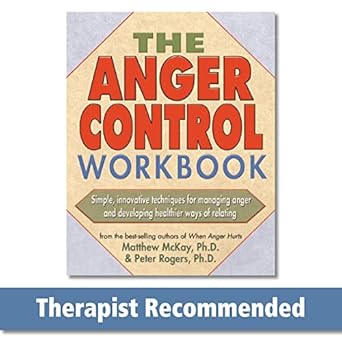
Anger Management
Contents
Introduction
Have you ever felt overwhelmed by anger, struggling to control it and noticing its impact on your relationships and overall well-being? then anger management can be a solution for your problems.
Anger management involves recognizing the signs of anger, developing strategies to control it, and finding healthy ways to express it. It’s essential for maintaining mental and emotional health, improving relationships, and achieving a more balanced life.
In this article, we will explore a range of techniques and strategies for effective anger management, through into their benefits and how they can significantly improve mental and emotional health.
What is Anger?
Anger is a natural emotion that everyone experiences. It’s a powerful response to perceived threats, injustice, or frustration. Common triggers include feeling attacked, frustrated, or treated unfairly. Anger can be categorized into various types:
- Passive Anger: This is expressed indirectly and can manifest as sarcasm, sulking, or backhanded compliments.
- Aggressive Anger: This involves direct and often physical expressions of anger, such as shouting or hitting.
- Assertive Anger: This is the healthiest form of anger expression, where feelings are communicated directly and constructively.
Why is Anger Management Important?
Anger management is a critical skill that influences various facets of an individual’s life. It involves recognizing the signs of anger, understanding its triggers, and developing healthy ways to handle and express anger.
Personal Health
- Mental Health: Chronic anger can lead to mental health issues such as depression, anxiety, and stress. Effective anger management helps maintain emotional balance.
- Physical Health: Unmanaged anger can contribute to physical health problems like high blood pressure, heart disease, and a weakened immune system.
Relationships
- Improved Communication: Managing anger helps in expressing feelings calmly and constructively, leading to healthier and more effective communication.
- Stronger Relationships: It prevents conflicts from escalating, fostering trust and understanding in personal and professional relationships.
Professional Life
- Workplace Harmony: Effective anger management reduces workplace conflicts, enhancing collaboration and productivity.
- Career Growth: Maintaining composure under stress can positively impact career advancement and professional reputation.
Related: Anxiety and Stress Related Disorders
The Science Behind Anger
Understanding the science behind anger can help us manage it better. Anger involves a complex interplay of psychological, biological, and neurological factors. Psychologically, it can stem from past experiences, personality traits, and cognitive biases. Biologically, hormones like adrenaline and cortisol play a significant role. Neurologically, anger activates the amygdala, the brain’s emotional center, which triggers the fight-or-flight response. This response can increase heart rate, blood pressure, and energy levels, preparing us to deal with the perceived threat (American Psychological Association, n.d.).
How Do You Recognize Anger?
Recognizing anger involves being aware of its physical, emotional, and behavioral signs. Understanding these indicators can help individuals address their anger before it escalates. Here are the key ways to recognize anger:
- Physical Reactions: Anger often triggers physiological changes, such as increased heart rate, muscle tension, and a heightened state of alertness.
- Facial Expressions: Common indicators of anger include furrowed brows, glaring eyes, and tightly clenched jaws.
- Body Language: An angry person may exhibit aggressive or defensive postures, such as crossed arms or clenched fists.
- Verbal Cues: The tone of voice may become sharp or raised, and language used might be confrontational or harsh.
- Behavioral Changes: Anger can lead to abrupt or erratic behavior, including outbursts or a desire to withdraw from the situation.
What Are the Impacts of Unmanaged Anger?
| Impact | Description |
| Physical Health Issues | Unmanaged anger can lead to chronic stress, which is associated with health problems such as hypertension, heart disease, and digestive issues. |
| Mental Health Problems | Persistent anger can contribute to mental health issues, including anxiety, depression, and increased stress levels. |
| Relationship Strain | Uncontrolled anger can damage relationships, causing conflicts, misunderstandings, and emotional distance between individuals. |
| Workplace Challenges | Anger in the workplace can lead to decreased productivity, increased absenteeism, and strained colleague relationships. |
| Legal Consequences | Outbursts of unmanaged anger can result in aggressive behavior or violence, potentially leading to legal troubles or criminal charges. |
| Social Isolation | Frequent anger can cause individuals to withdraw from social interactions, leading to isolation and difficulties in forming or maintaining relationships. |
Therapeutic Approaches to Anger Management
For many, professional help is an essential part of anger management. Here are some therapeutic approaches that can make a difference:
- Cognitive-Behavioral Therapy: CBT focuses on identifying and changing negative thought patterns and behaviors that contribute to anger. It helps individuals develop healthier ways of thinking and reacting to anger-provoking situations.
- Mindfulness-Based Therapy: This approach encourages individuals to observe their thoughts and feelings without judgment. Mindfulness techniques help increase self-awareness and control over emotional responses, reducing the intensity of anger.
- Dialectical Behavior Therapy: DBT combines cognitive-behavioral techniques with mindfulness practices. It is particularly useful for individuals with intense emotional reactions, helping them manage anger through emotional regulation and distress tolerance skills.
- Anger Management Programs: These structured programs often include a combination of individual or group therapy, educational sessions, and practical exercises. They focus on teaching specific anger management techniques and strategies.
- Interpersonal Therapy: IPT addresses the interpersonal and relational aspects of anger. It helps individuals understand how their anger affects their relationships and develop healthier ways to communicate and resolve conflicts.
- Psychodynamic Therapy: This approach explores underlying emotional issues and unconscious conflicts that contribute to anger. It aims to uncover the root causes of anger and work through unresolved issues from the past.
Long-Term Anger Management Strategies
In addition to immediate techniques, long-term strategies are crucial for managing anger:
- Self-Awareness and Reflection: Regularly reflect on your triggers and responses to anger. Understanding what causes your anger and how you react can help you manage your responses more effectively.
- Develop Healthy Communication Skills: Practice assertive communication techniques. Express your feelings and needs clearly and calmly without aggression. This involves listening actively and avoiding blame or criticism.
- Stress Reduction Techniques: Incorporate relaxation methods such as deep breathing exercises, meditation, or progressive muscle relaxation into your daily routine. Reducing overall stress can help manage anger more effectively.
- Regular Physical Exercise: Engage in regular physical activity to help reduce stress and improve mood. Exercise can also provide an outlet for built-up tension and anger.
- Seek Professional Help: Consider therapy or counselling to explore underlying issues related to anger and develop coping strategies. Cognitive-behavioral therapy (CBT) is particularly effective in helping individuals understand and change their thought patterns related to anger.
What Are the Best Books on Anger Management?

Anger: Wisdom for Cooling the Flames (2005)

Anger Management for Dummies (2003)

The Anger Control Workbook (2004)

Anger: How to Live with and without It (1992)

The Art of Anger Management (2014)

The Anger Management Workbook (2020)

Anger Management for Parents (2021)

The Anger Management Workbook for Women
Conclusion
Effective anger management is crucial for maintaining mental, emotional, and physical health. By recognizing the signs of anger and understanding its impacts, individuals can implement strategies to manage their anger constructively. Long-term techniques such as self-awareness, healthy communication, and stress reduction play a vital role in sustaining emotional balance. Therapeutic approaches, including CBT and mindfulness, offer valuable tools for deeper emotional work. By integrating these strategies, individuals can enhance their relationships, improve their well-being, and lead a more balanced life.
References
- [1] American Psychological Association. (n.d.). Anger. Retrieved from
- [2] Carbonell, D. C. (1993). Anger: Taming the beast. New York: Penguin Books.
- [3] Davies, W. (2009). Overcoming anger and irritability: A self-help guide using cognitive behavioral techniques. New York: Oxford University Press.
- [4] Elliott, C. H., & Smith, L. L. (2003). Anger management for dummies. Hoboken, NJ: Wiley.
- [5] Harper, R. D. H., & Ellis, A. (1992). Anger: How to live with and without it. New York: HarperCollins.
- [6] Johnson, S. (2018). Anger management: Strategies and solutions. San Francisco, CA: Jossey-Bass.
- [7] Knaus, W. J. (2015). The cognitive behavioral therapy workbook for anger: A step-by-step program for managing aggression and reducing conflict. Oakland, CA: New Harbinger Publications.
- [8] Leahy, R. L. (2004). The anger control workbook. Oakland, CA: New Harbinger Publications.
- [9] Lerner, H. (1998). The dance of anger: A woman’s guide to changing the patterns of intimate relationships. New York: HarperCollins.
- [10] McKay, M., Rogers, P., & McKay, J. (2004). The anger control workbook. Oakland, CA: New Harbinger Publications.










